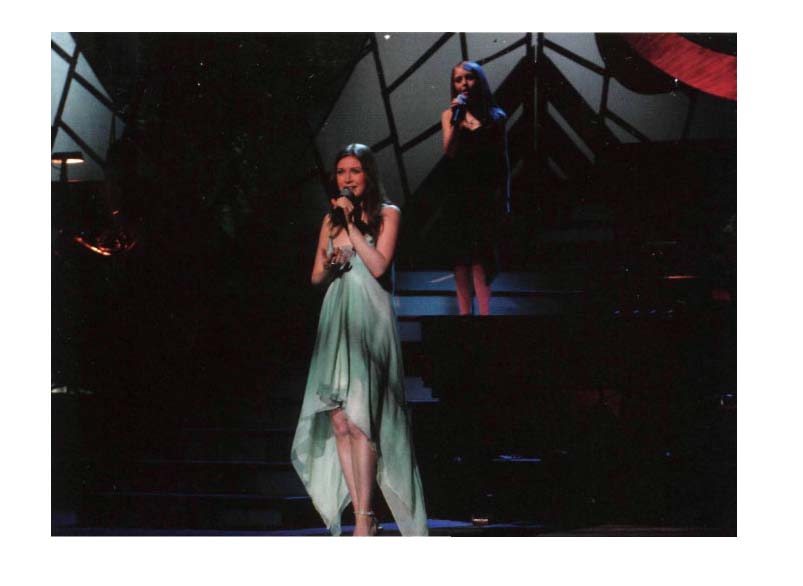Hayley Westenra (6 page)
Authors: Hayley Westenra

My lack of confidence also extended to speaking out creatively about the album. I was not convinced that anyone would listen to me if I told them that I thought that the 'Pie Jesu' needed to be slower, or if I felt that another track had been put into the wrong key. A keyboard track had already been recorded for all the songs as a guide and it didn't occur to me that, as the artist, I could put my foot down and get them to rerecord the keyboard part to follow me instead of me following the keyboard part. It was a very beneficial learning curve for me and, from that moment on, I vowed to become far more involved in the process on any subsequent albums that I made.
As a bonus track, Universal got hold of a recording of
'Amazing Grace' which I had performed with the
Royal Scots Dragoon Guards when I was fourteen. They were in New Zealand on tour and I had joined them on stage in Hamilton. It was this recording that was used. One of the particular challenges I discovered was that bagpipes can play in only one key, which was, in truth, way too low for my voice. It was still an exciting performance and I think this comes across on the recording.
The album was very simply called
Hayley Westenra.
Once again, I had no high expectations of how many copies it
might sell. For me, it seemed a great achievement for a teenage girl from Christchurch to have made an album like this, thanks, in the main, to the tenacity and support of her parents. I didn't know how many albums I would have to sell to make it a successful record or the number of sales that would render it a flop. I don't think the record company had enormously high expectations for it because they had never really had an artist like me before, so they didn't have any historical precedents to judge it by.
I was on the television programme
Sixty Minutes
on the Sunday night before the album was released. It's a big documentary-style programme, which covers three topics, spending around twenty minutes on each one. I was interviewed for the show and I can still remember the horror I felt when the producers told me that they wanted to have a shot of me at my piano in my bedroom. The whole camera crew squashed themselves into my little room. As I waited for them to set up the lights, I looked around the green wallpaper on the walls, covered with random pieces of artwork that I had painted myself. Jars filled with coloured stones, my collection of shells and various hand-painted pottery creations jostled for space on the shelves. It was just like any other teenage girl's bedroom, except that today, plonked right in the middle of it, were a camera crew with their bright lights and big sound boom.
I had not realised just how influential a programme
Sixty Minutes
is in New Zealand. They have continued to be incredibly supportive of me ever since. The morning after that first interview aired, there were apparently people queuing up outside the record shops in Christchurch, waiting to buy my CD. It was truly amazing. Suddenly, my album was selling faster than even my most optimistic supporter would have predicted. They were flying off the shelves and, in no time at all, the album had gone triple platinum in New Zealand.
A lot of the people who bought that first record were mothers and grandmothers, but these days I'm connecting with more people my own age as well. My albums always sell particularly strongly in the week before Mother's Day. As well as the older fans, I also seem to appeal to young girls who are themselves aspiring to be singers. These days, when I'm performing in New Zealand, I often look out into the audience and see three generations of families coming along to my concerts, which gives me a real buzz. To be honest, I don't mind at all who buys my records. I simply want to make music that connects with real people, no matter who they are or where they come from.
When people say to me that I'm the biggest name in New Zealand's recording history, I find it quite an incredible concept, in the truest sense of the word. I'm still very much focused on the simple things in life and in getting the basics of what I do absolutely right. Despite the fact that I now perform in front of thousands of people, I still want to give a performance that is just as authentic as those that I used to give in front of far smaller crowds. I still enjoy the same things and have the same group of friends I had before I had a number-one record. I love going to the movies and chatting to my family on the phone. I don't feel that I've changed that much. I'm still working on bettering my voice, finding great songs, and even writing songs for myself. These are the same things I've always spent my time doing. It's not as if my life had been tipped upside down. I feel as if I'm very much on the same path – just a bit further along it.
When
Hayley Westenra
went to number one, I took it completely in my stride. It didn't mean as much to me as it probably should have done. I guess the biggest change was at school, where other kids would notice me, saying, 'Hey! It's that singer. Oi, sing us a song!' Or they'd just whisper, 'Look, it's Hayley Westenra' as I went from one class to the
next. I was very fortunate in that there was certainly no bullying at school, just joking around. In fact, the only time when I was bullied was far, far earlier, when I was around eight years old and I was hassled by a group of girls after I sang the Denice Williams song
'Let's Hear It for the Boy'. These girls used to tease me by saying, 'Who's your boy, then, Hayley?' I was only eight years old and unfortunately I didn't have any clever quips to fire back at them, so took the teasing to heart. It didn't last for long, though, and it would have better enabled me to handle any bullying as a teenager but thankfully none of any substance came my way.
Occasionally, the kids at school who didn't know me that well would try to wind me up, but it never bothered me in the slightest. My friends and I actually found it quite amusing and, in truth, I probably enjoyed the attention. When you've been on television, people start to notice you and it felt like a measurement of success. It seemed as though I was obviously getting somewhere because people were engaging with me. That said, I did realise that it was possible to be famous and not successful and understood the importance of having a record that was high in the charts.
I carried on with my classes, but, increasingly, I found myself spending more and more time promoting the album. I performed in a national tour across New Zealand, taking in places such as Wellington, Hamilton, Christchurch and even Timaru. It was very special to go back there for the first time as a professional singer. It was my grandparents' home town and never mind the fact that I might have sold more tickets in a bigger city. I just wanted to perform in Timaru because Nanna and Grandad were there.
One of the things that I've learned about the record industry is that, when things are going well, record companies always want more – and quickly. So I was asked to make a Christmas album,
My Gift to You,
a title that I have to confess I've always thought of as being rather cheesy.

The littlest star: my performing debut, aged six

Captivating the audience with my new microphone
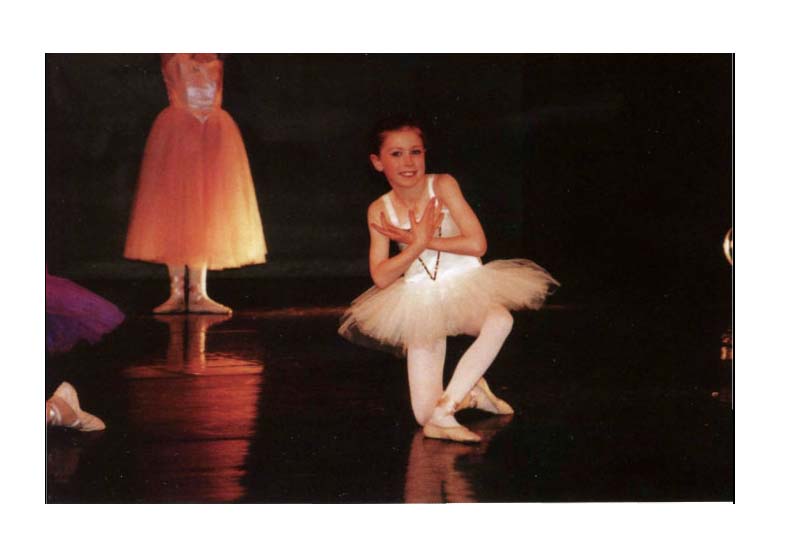
loved my tutu, but ballet soon took second place to the singing
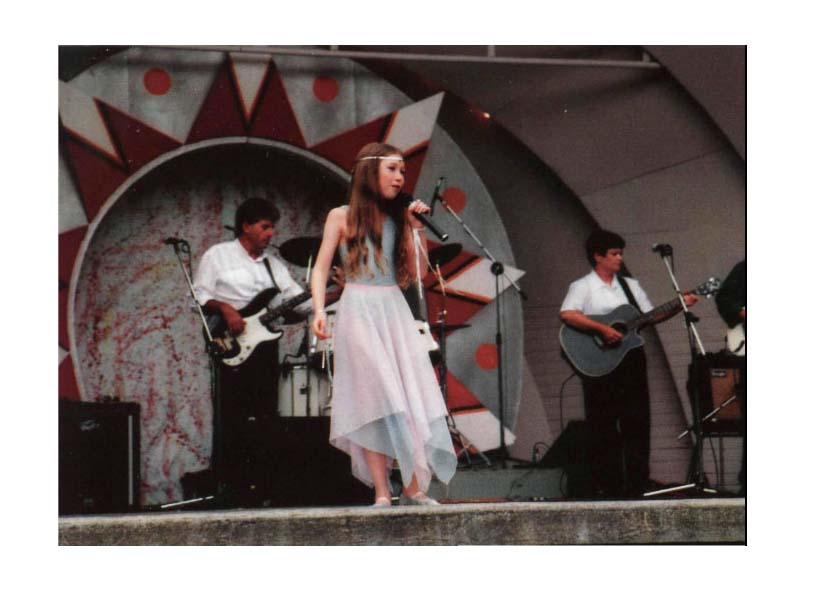
Caroline Bay Carnival, January 1999

I have inherited my musicality from both my Nanna and Grandad
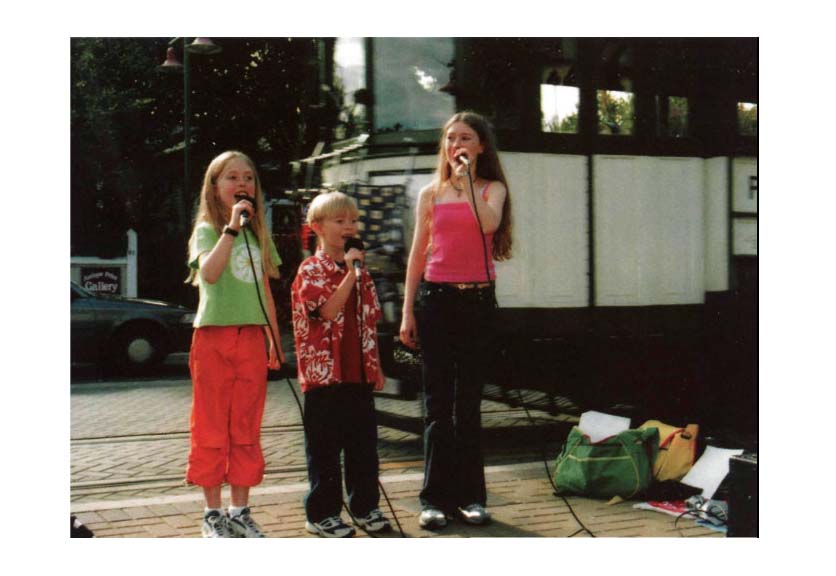
Busking for our lunch: Sophie, Isaac and me in the Arts Centre area of Christchurch
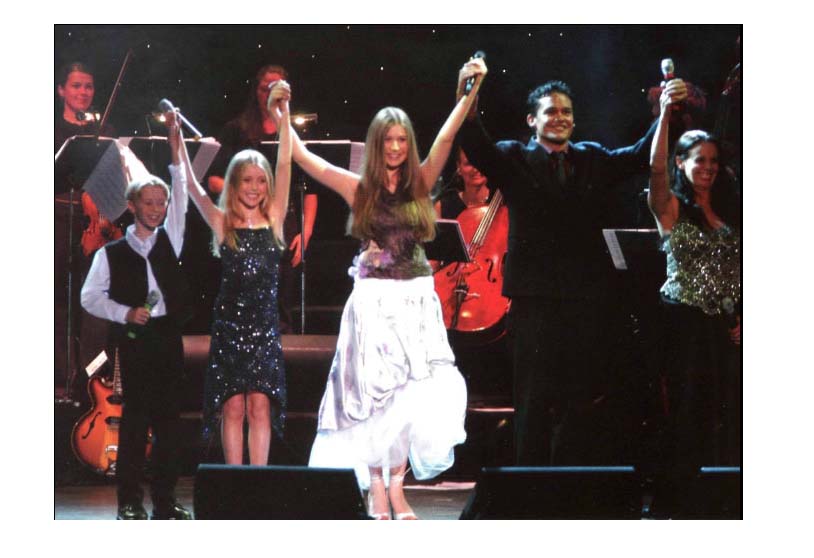
The Pure tour, with Isaac, Sophie, Brandon Poe and Hinewehi Mohi
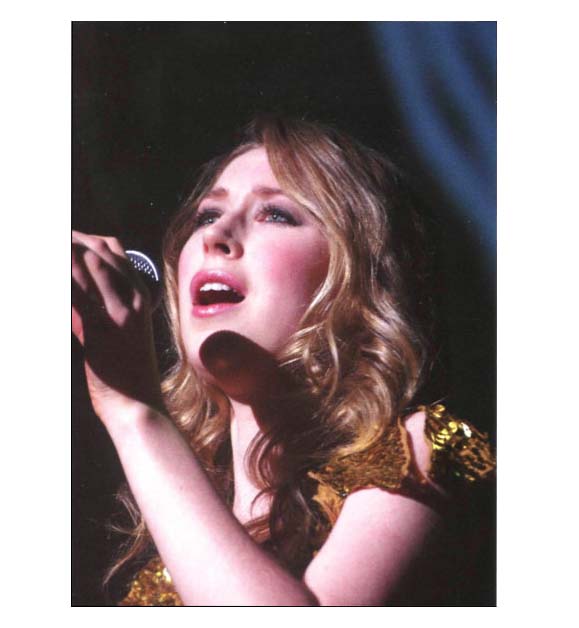
Cadogan Hall
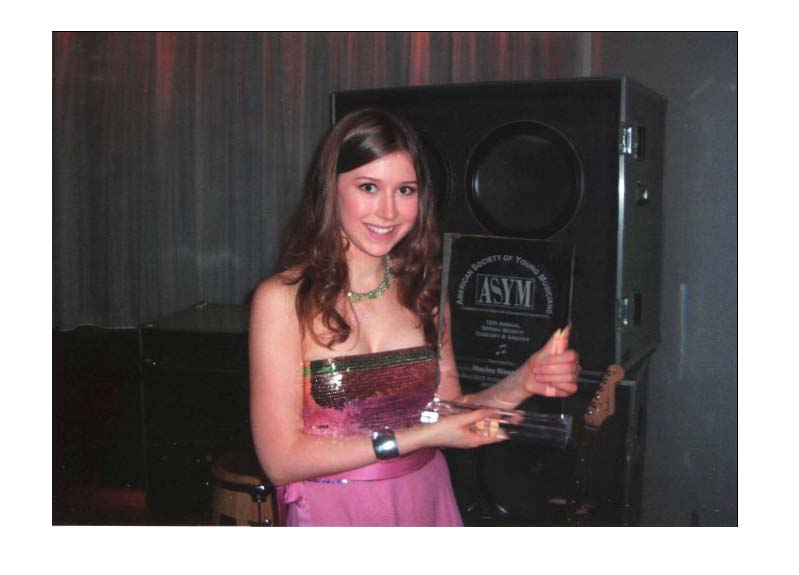
Holding the American Society of Young Musicians Young Performer of the Year trophy
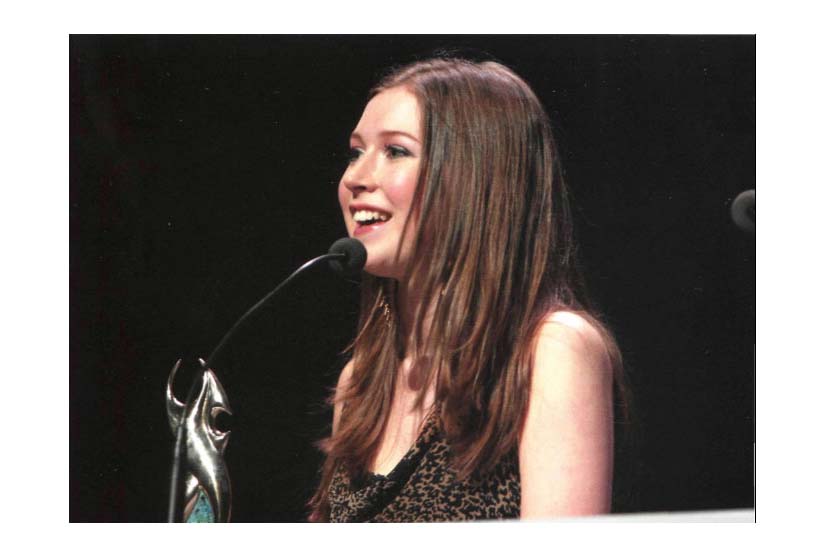
Collecting another award at the New Zealand Music Awards

Recording at Air Studios with Sir George Martin
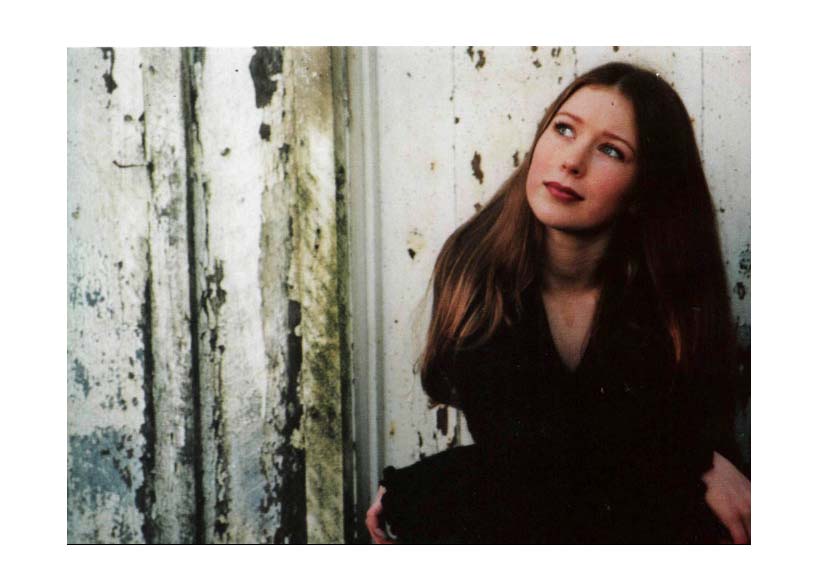
The photo that my mum took for the cover of my very first album
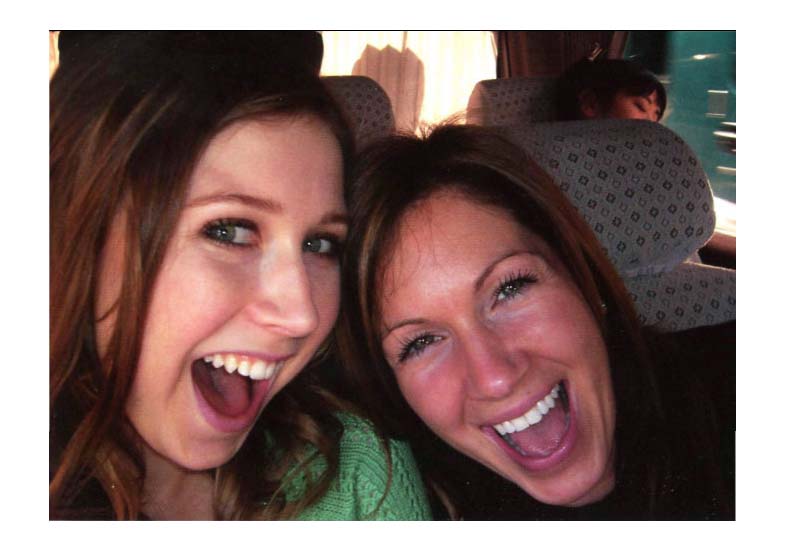
Kathryn and me having a delirious moment due to serious jet lag in Japan!
